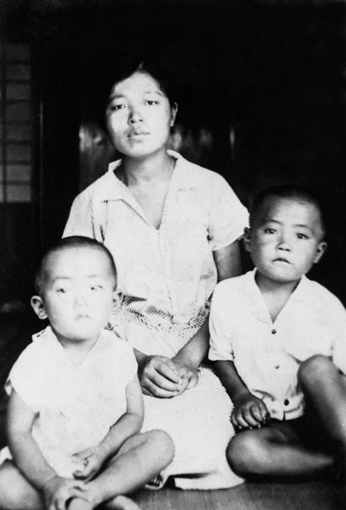Notable Moments
[Facebook Archive] Memories of Sweet Potatoes and the Lesson of “Stopgap Buying”
October 12, 2020

October 13 is "Sweet Potato Day" in Japan. Sweet potatoes, introduced to Japan from China in ancient times, began to be called "Satsuma-imo" (Satsuma potatoes) after the Satsuma Domain started cultivating them. Inamori has been familiar with sweet potatoes as a snack since childhood. His mother used to steam them ... There's a notable moment that became the basis for the practice of "stopgap buying" at Kyocera, which I would like to share.
Inamori's family ran a printing and paper bag manufacturing business. His father was a diligent, hard-working man, and his mother was a cheerful and lively woman. His father was from a rural area far from Kagoshima City, and his relatives who owned a farm often came to the nearby area to sell vegetables loaded on big pushcarts and carrying poles. In the evening, they would stop by Inamori's house, saying they'd offer their unsold vegetables at a lower price, as carrying them back home would be heavy. Inamori's mother, feeling sympathetic, and considering the low cost as well as the fact that they were relatives of her husband, often bought the vegetables.
As a young boy, Inamori thought she was doing a good thing. However, during dinner, his father would see the piled-up vegetables in the kitchen and get angry, saying, "You bought things you didn't need to buy again." Inamori's mother would then retort, "Your distant relatives took the trouble to come here. I got those vegetables much cheaper than I would've at the city greengrocers. There's no reason for you to be angry with me." Quietly watching them, Inamori thought his mother was right.
But one summer day, he saw his mother digging in the garden. She was unearthing sweet potatoes that she had buried a long time ago, and they were quite damaged. She cut off the bad parts with a knife while saying, "Oh my, my, I can't believe they got this bruised," and the sweet potatoes rapidly reduced in size. After boiling the small potatoes in a big pot, she told Inamori to invite his friends from the neighborhood over, and they all ate until they were full. It was then that Inamori realized, "Ah, I see why my father was angry. A wife like this could ruin a household."
From childhood experiences like this, he learned that while it may seem cheaper to buy in bulk, people tend to use more or use things recklessly when there's a lot of something. On the other hand, if you have only what you need now, you tend to use it carefully. That's why they made it a rule at Kyocera to buy only the necessary amount of materials each month. Depending on the case, we may purchase only the amount we need each day, a practice called "stopgap buying," which has become a principle for purchasing materials.
Photo: A young Inamori (left) with his mother